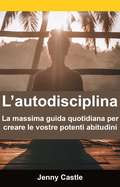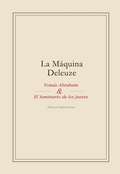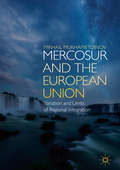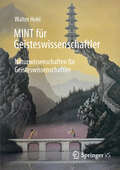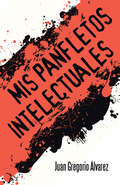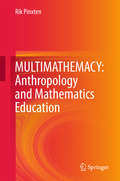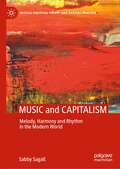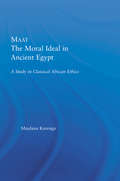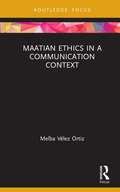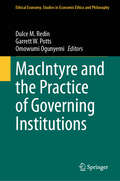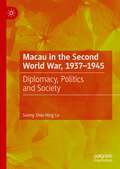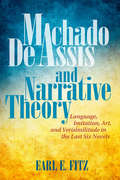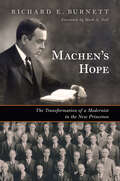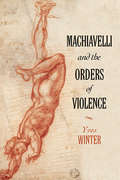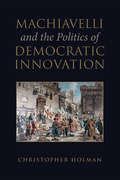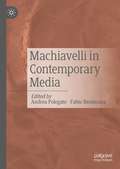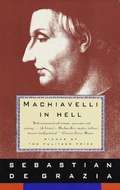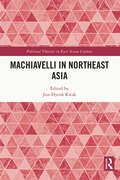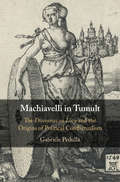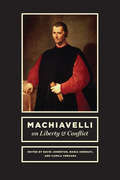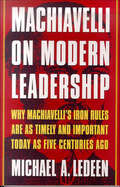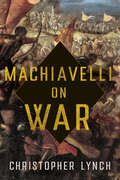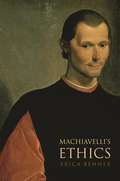- Table View
- List View
L’autodisciplina: la massima guida quotidiana per creare le vostre potenti abitudini
by Jenny CastleL’autodisciplina: la massima guida quotidiana per creare le vostre potenti abitudini In questo libro imparerete come l'autodisciplina può cambiare la vostra vita e come è facile sviluppare buone abitudini e godersi il processo. L'autodisciplina è uno degli strumenti che, una volta padroneggiato, può cambiare la vostra vita per sempre. Imparerete a porvi le giuste domande che vi faranno muovere verso i vostri obiettivi e raggiungere il vostro pieno potenziale. Questo libro vi aiuterà ad identificare i passi su come sviluppare buone abitudini, l’autocontrollo, e a battere la procrastinazione e vivere una vita eccezionale. Se pensate che anche voi soffrite di problemi di autostima, allora avete fatto il giusto passo avanti quando avete acquistato questo libro. Risolvere il problema della bassa autostima inizia quando un individuo ammette che questo problema esiste e poi cerca attivamente qualsiasi aiuto sia disponibile. D'altra parte, se non avete problemi di autostima, ma volete semplicemente aumentare le vostre possibilità di successo e di realizzazione senza diventare troppo orgogliosi o vanagloriosi, questo libro sarà di grande aiuto anche per voi. Scorrete in alto per comprare la vostra copia oggi stesso!
MAQUINA DELEUZE, LA (EBOOK)
by Tomas AbrahamDeleuze irrumpe en el pensamiento del siglo veinte como una tempestad. Impone a su paso nuevas posiciones, nuevas actitudes, nuevas palabras, nuevas condiciones de lectura. Este libro es literalmente una máquina que transporta en todas las direcciones que Deleuze inspira las formas menos previsibles del pensamiento filosófico y también sus proyecciones sobre el suelo de la literatura, ya sea específicamente técnicas o biográficas. Como dice Tomás Abraham en el prólogo, hay un Deleuze edificante, un Deleuze sísmico y, a partir de éstos, hay contemplaciones de lucidez extraordinaria y aludes que aglutinan cadenas de pensamiento. El Seminario de los Jueves de Tomás Abraham era el equipo perfecto, el dream team capaz de concentrar todas las heterogeneidades del pensamiento de Deleuze para conseguir esta máquina que funciona de muy diversas maneras, de acuerdo con los flujos y las intensidades, las apetencias y los requerimientos de los distintos autores y lectores. Y que alimenta a su vez una fuente inagotable de ideas.
MERCOSUR and the European Union: Variation And Limits Of Regional Integration
by Mikhail MukhametdinovThe book draws comparison between MERCOSUR and the European Union to explain variation of regionalism and to expose its limits. The project is based on the idea that contemporary examples of regionalism should be evaluated against several propositions of multiple integration theories rather than against a single theory. In order to systematically explain why and how integration outcomes in MERCOSUR differ from those in the EU, the author develops an analytical framework for the comparison of the two blocs. MERCOSUR is compared with the EU by the use of the various criteria of economic interdependence, economic convergence, intra-bloc size and interest asymmetries, cultural diversity and geostrategic motivations, which are identified as the salient parameters of integration theories.
MINT für Geisteswissenschaftler: Naturwissenschaften für Geisteswissenschaftler
by Walter HehlDer Beginn von Naturwissenschaft und Geisteswissenschaft in der Antike war gemeinsam, aber die Naturwissenschaft hatte sich bis zum Ende des 19. Jahrhundert durch ihre Erfolge dominant entwickelt. Gegen diese Dominanz prägte der Philosoph Wilhelm Dilthey 1883 den Begriff der Geisteswissenschaften. In den Naturwissenschaften war es andrerseits klar, dass ganze Bereiche des Geistes den Naturwissenschaften nicht zugänglich waren, etwa sinnliche Empfindungen und das Bewusstsein.Das Buch versucht zu zeigen, dass dieser harte Gegensatz weicher geworden ist. Die Physik ist geistiger geworden und die Technologie des Geistes hat sich entwickelt: Es ist im Grundsatz die Informationstechnologie. Mit der Mathematik als Fundament und als Hilfsmittel ergibt dies MINT.Ein geistiges Weltbild ohne MINT ist in Würde nicht möglich. Es gibt eine Reihe von MINT-Bereichen, die unmittelbar geisteswissenschaftlich von Nutzen sind. Beispiele sind etwa das Prinzip des Lasers undder Begriff der Entropie. Ein dritter, geistiger Bereich bleibt außerhalb: die Kunst. Aber Kunst und MINT sind keine Gegensätze.
MIS PANFLETOS INTELECTUALES
by Juan Gregorio ÁlvarezEsta obra tan personal como universal nos sumerge en la filosofía desde una muy actual crítica cultural y social presentada en formato de volantes que inducen a una profunda reflexión. <P><P>La sociedad moderna vista como una sociedad de castas de mayores o menores capacidades intelectuales, el sobrevalorado trabajo y la carencia del ocio enriquecedor, las pretensiones del intelectual y su desprecio por las masas, el valor no pragmático de la cultura , el capitalismo como el materialismo práctico más vulgar e inferior, las utopías del comunismo, el 15-M como un movimiento de quienes no pueden tener pisito, cochecito, fundar una familia o algún sucedáneo suyo, ni tener sueldo digno para vacaciones en la playa o en la montaña o Podemos que solo tiene en su horizonte ese mejoramiento del nivel de vida popular; la religión como el aroma espiritual de un mundo sin espíritu, la psicología y el periodismo como una de las mayores pestes de la sociedad actual, los medios técnicos como intrascendentes si sólo sirven para lograr una conservación meramente cuantitativa de la vida o para llenarse la cabeza de información basura son algunos de los temas abordados desde la ácida visión de Juan Gregorio Álvarez, de la que no escapa ni siquiera el fútbol. <P><P> Mis panfletos intelectuales recorre conceptos universales lejos de todo sectarismo ideológico en un ejercicio de pensamiento vital personal y de indagación filosófica que atraviesa la crítica cultural, política y religiosa desde la perspectiva de Nietzsche de filosofar con el martillo o desde la de Ortega de la salvación intelectual de su circunstancia.
MULTIMATHEMACY: Anthropology and Mathematics Education
by Rik PinxtenThis book defends that math education should systematically start out from the diverse out-of-school knowledge of children and develop trajectories from there to the Academic Mathematics tower of knowledge. Learning theories of the sociocultural school (Vygotsky and on) are used here, and ethnographic knowledge from around the world is shown to offer a rich and varied base for curricula. The book takes a political stand against the exclusively western focus in OECD analyses and proposals on math education. This book aimsat agents in education and social actions in every cultural environment. But itis also attractive to mathematicians, anthropologists and other specialists. Itoffers a broad and scholarly view of knowledge and culture and a veryoriginal transcultural and transdisciplinarian approach to education. Ubiratan D'Ambrosio, UNICAMP/Universidade Estadual de Campinas, Brazil
MUSIC and CAPITALISM: Melody, Harmony and Rhythm in the Modern World (Critical Political Theory and Radical Practice)
by Sabby SagallThis book argues that the need for music, and the ability to produce and enjoy it, is an essential element in human nature. Every society in history has produced some characteristic style of music. Music, like the other arts, tells us truths about the world through its impact on our emotional life. There is a structural correspondence between society and music. The emergence of 'modern art music' and its stylistic changes since the rise of capitalist social relations reflect the development of capitalist society since the decline of European feudalism. The leading composers of the different eras expressed in music the aspirations of the dominant or aspiring social classes. Changes in musical style not only reflect but in turn help to shape changes in society. This book analyses the stylistic changes in music from the emergence of ‘tonality’ in the late seventeenth century until the Second World War.
Maat, The Moral Ideal in Ancient Egypt: A Study in Classical African Ethics (African Studies)
by Maulana KarengaFirst published in 2004. Routledge is an imprint of Taylor & Francis, an informa company.
Maatian Ethics in a Communication Context (Routledge Focus on Communication Studies)
by Melba Vélez OrtizMaatian Ethics in a Communication Context explores the ethical principle of Maat: the guiding principle of harmony and order that permeated classical African political and civil life. The book provides a rigorous, communication-focused account of the ethical wisdom ancient Africans cultivated and is evidenced in the form of recovered written texts, mythology, stelae, prescriptions for just speech, and the hieroglyphic system of writing itself. Moving beyond colonial stereotypes of ancient Africans, the book offers insight into the African value systems that positioned humans as inextricably embedded in nature, and communication theory that anchors good communication in careful listening habits as the foundational moral virtue. Expanding on the work of Maulana Karenga, Molefi Kete Asante and other groundbreaking scholars, the book presents a picture of civilizations with a shared lust for life, a spiritual connection to scientific speech, and the veneration of ancestors as deeply connected to the pursuit of wisdom. Offering an examination of Maat from a specifically communication ethics perspective, this book will be of great interest to scholars and students of Communication Ethics, African philosophy, Rhetorical theory, Africana Studies and Ancient History.
MacIntyre and the Practice of Governing Institutions (Ethical Economy #1)
by Garrett W. Potts Omowumi Ogunyemi Dulce M. RedínThis volume offers a cross-disciplinary exploration of Alasdair MacIntyre's provocative approach to governance, drawing on insights from philosophy, economics, sociology, business ethics, and organizational studies. The chapters explore how MacIntyre’s theory is applied to diverse institutional contexts, including education, medicine, and technology, addressing contemporary challenges in governance and ethical decision-making. Bringing together well-known scholars from the 16th Annual Conference of the International Society for MacIntyrean Enquiry (ISME) at the University of Navarra, this book critically examines the role of governing institutions in shaping practices and traditions. It highlights MacIntyre’s distinction between practices and institutions, addressing how these concepts influence ethical governance, leadership, and community-building in today's complex societal landscapes. Contributors explore key themes such as the development of virtues within institutions, the ethical challenges of artificial intelligence, the moral foundations of education, and the governance of professions like medicine and land management. This volume also engages with contemporary issues, offering practical insights for fostering ethical decision-making and community participation in an increasingly technocratic world. MacIntyre and the Practice of Governing Institutions is an essential resource for scholars of political philosophy, ethics, and governance, as well as for practitioners looking to navigate the ethical challenges posed by modern institutions. By examining how MacIntyre's thought applies to real-world issues, this book provides both theoretical depth and practical strategies for promoting human flourishing through virtuous governance.
Macau in the Second World War, 1937-1945: Diplomacy, Politics and Society
by Sonny Shiu-Hing LoThis book offers a re-interpretation of the political history of Macau from 1937 to 1945, during which Japan and China were engulfed in the Second World War. Using an array of English and Chinese sources, the author explores the diplomatic and social landscape of war-time Macau under Portuguese colonial rule. By framing this analysis within the concept of Portuguese ‘neutrality’, the book builds on the political history of Macau and provides new insights into the role of Japanese collaborators and Communist guerrillas. Seeking to answer important questions such as why Macau was not invaded by Japan in the Second World War, and what role the Nationalist Party Government played during this period, this book presents a new approach to examining Macau’s diplomatic history. A unique read for scholars of Chinese history, this book will also appeal to those researching diplomatic and political history during the Second World War.
Machado de Assis and Narrative Theory: Language, Imitation, Art, and Verisimilitude in the Last Six Novels (Bucknell Studies in Latin American Literature and Theory)
by Earl E. FitzThis book makes the argument that Machado de Assis, hailed as one of Latin American literature’s greatest writers, was also a major theoretician of the modern novel form. Steeped in the works of Western literature and an imaginative reader of French Symbolist poetry, Machado creates, between 1880 and 1908, a “new narrative,” one that will presage the groundbreaking theories of Swiss linguist Ferdinand de Saussure by showing how even the language of narrative cannot escape being elusive and ambiguous in terms of meaning. It is from this discovery about the nature of language as a self-referential semiotic system that Machado crafts his “new narrative.” Long celebrated in Brazil as a dazzlingly original writer, Machado has struggled to gain respect and attention outside the Luso-Brazilian ken. He is the epitome of the “outsider” or “marginal,” the iconoclastic and wildly innovative genius who hails from a culture rarely studied in the Western literary hierarchy and so consigned to the status of “eccentric.” Had the Brazilian master written not in Portuguese but English, French, or German, he would today be regarded as one of the true exemplars of the modern novel, in expression as well as in theory. Published by Bucknell University Press. Distributed worldwide by Rutgers University Press.
Machen's Hope: The Transformation of a Modernist in the New Princeton
by Richard E. BurnettThe first critical biography of J. Gresham Machen, examining the full arc of his intellectual career J. Gresham Machen is known as a conservative hero of the fundamentalist-modernist controversy. But was he always so staunchly antimodernist? In this sweeping new biography, Richard E. Burnett examines the whole of Machen&’s life and career—from his early years at Princeton, to his experience in the First World War, to his founding of Westminster Theological Seminary . Burnett pays special attention to topics that have received little attention from biographers, like Machen&’s crisis of faith and his support for historical criticism of Scripture. Incorporating all of Machen&’s major works as well as his previously unpublished private correspondence, Burnett crafts a nuanced narrative of Machen&’s intellectual journey from enthusiastic modernist to stalwart conservative. Nuanced and thorough, Machen&’s Hope will challenge scholars&’ assumptions about Machen and his dynamic era.
Machiavelli and the Modern State
by Alissa M. ArditoThis book offers a significant reinterpretation of the history of republican political thought and of Niccol- Machiavelli's place within it. It locates Machiavelli's political thought within enduring debates about the proper size of republics. From the sixteenth century onward, as states grew larger, it was believed only monarchies could govern large territories effectively. Republicanism was a form of government relegated to urban city-states, anachronisms in the new age of the territorial state. For centuries, history and theory were in agreement: constructing an extended republic was as futile as trying to square the circle; but then James Madison devised a compound representative republic that enabled popular government to take on renewed life in the modern era. This work argues that Machiavelli had his own Madisonian impulse and deserves to be recognized as the first modern political theorist to envision the possibility of a republic with a large population extending over a broad territory.
Machiavelli and the Orders of Violence
by Yves WinterNiccolò Machiavelli is the most prominent and notorious theorist of violence in the history of European political thought - prominent, because he is the first to candidly discuss the role of violence in politics; and notorious, because he treats violence as virtue rather than as vice. In this original interpretation, Yves Winter reconstructs Machiavelli's theory of violence and shows how it challenges moral and metaphysical ideas. Winter attributes two central theses to Machiavelli: first, violence is not a generic technology of government but a strategy that tends to correlate with inequality and class conflict; and second, violence is best understood not in terms of conventional notions of law enforcement, coercion, or the proverbial 'last resort', but as performance. Most political violence is effective not because it physically compels another agent who is thus coerced; rather, it produces political effects by appealing to an audience. As such, this book shows how in Machiavelli's world, violence is designed to be perceived, experienced, remembered, and narrated.
Machiavelli and the Politics of Democratic Innovation
by Christopher HolmanPresenting a detailed reinterpretation and reconstruction of the political thought of Niccolò Machiavelli, Machiavelli and the Politics of Democratic Innovation uses original readings of Machiavelli’s texts to develop a new theoretical model of democratic practice. The book critically and creatively juxtaposes certain concepts drawn from Machiavelli’s work in order to produce new political insights. Christopher Holman identifies two unique ideas in Machiavelli through his rearrangement of Machiavellian concepts. The first, drawn primarily from The Prince, is an image of the individual human being as a creative subject that seeks the exteriorization of desire via political creation. The second, drawn primarily from The Discourses on Livy, is an image of the democratic republic as a form of regime in which this desire for creative self-expression is universalized, all citizens being able to affirm their psychic orientation toward innovation through their equal access to political institutions and orders. Such institutions and orders, to the extent that they function as media for the expression of a fundamental human creativity, must be arranged so that they are capable of continual interrogation and refinement. In the final instance, a new ethical ground for the normative defense of democratic life is constructed, one grounded in the orientation of individual beings toward novelty and innovation.
Machiavelli in Contemporary Media
by Andrea Polegato Fabio BenincasaThere is an undeniable and persisting fascination with Niccolò Machiavelli and his infamous political theories in contemporary pop culture. Many comic books, video games, TV series, movies, and graphic novels make explicit or implicit references to the most infamous political thinker of all-time. By offering the reader an idea of how Machiavelli is present and represented in contemporary media (in particular, in Assassin’s Creed, House of Cards, Homeland, pop art, American and Italian politics, Italian cinema, and Trump’s rise to power), Machiavelli in Contemporary Media gives new life to Machiavellian thought and shows how his theories—but also the several different interpretations of them (Machiavellianism)—are still influential today.
Machiavelli in Hell
by Sebastian De GraziaIn this intellectual biography, de Grazia presents a new vision of Niccolo Machiavelli that evokes the great Florentine thinker's presence. After giving an engrossing account of Machiavelli's childhood and period of personal crisis that followed his imprisonment and torture, the book turns to an examination of The Prince.<P><P> Pulitzer Prize Winner
Machiavelli in Northeast Asia (Political Theories in East Asian Context)
by Jun-Hyeok KwakAnalyzing the multifaceted receptions of Machiavelli from early modernity to the present history of Northeast Asia, this book explores a better East-West dialogue through which Machiavelli’s political philosophy can be appropriated properly in Northeast Asian practices. First, comparing the receptions of Machiavelli in Europe with the early introduction of his texts in Northeast Asia, it investigates what has been missing from the reception of his ideas in Northeast Asia. Second, examining the imperative issues which haven’t been construed appropriately even in recent reinterpretations of Machiavelli’s political philosophy in Northeast Asia, it searches for a direction of East-West dialogue through which Machiavelli’s political philosophy is not inordinately contextualized within the sociopolitical demands of Northeast Asian societies in accordance with time and place. Third, given the continuing interest in Machiavelli’s political realism, it examines the different conjunctions of his political realism with diverse traditional and contemporary political thinking in Northeast Asia. This book will be attractive to scholars in political philosophy, history, political theory, comparative philosophy, and area studies focused on East Asia, as well as scholars working in the field of comparative literature.
Machiavelli in Tumult: The Discourses on Livy and the Origins of Political Conflictualism
by Gabriele PedullàAmong the theses that for centuries have ensured Niccolò Machiavelli an ambiguous fame, a special place goes to his extremely positive opinion of social conflicts, and, more in particular, to the claim that in ancient Rome 'the disunion between the plebs and the Roman senate made that republic free and powerful' (Discourses on Livy I.4). Contrary to a long tradition that had always highly valued civic concord, Machiavelli thought that - at least under certain conditions - internecine discord could be a source of strength and not of weakness, and built upon this daring proposition an original vision of political order. Machiavelli in Tumult (originally published in Italian in 2011) is the first book-length study entirely devoted to analyzing this idea, its ancient roots (never before identified), its enduring (but often invisible) influence up until the American and the French Revolution (and beyond), and its relevance for contemporary political theory.
Machiavelli on Liberty & Conflict
by Nadia Urbinati Camila Vergara David Johnston, Nadia Urbinati, and Camila VergaraMore than five hundred years after Machiavelli wrote The Prince, his landmark treatise on the pragmatic application of power remains a pivot point for debates on political thought. While scholars continue to investigate interpretations of The Prince in different contexts throughout history, from the Renaissance to the Risorgimento and Italian unification, other fruitful lines of research explore how Machiavelli’s ideas about power and leadership can further our understanding of contemporary political circumstances. With Machiavelli on Liberty and Conflict, David Johnston, Nadia Urbinati, and Camila Vergara have brought together the most recent research on The Prince, with contributions from many of the leading scholars of Machiavelli, including Quentin Skinner, Harvey Mansfield, Erica Benner, John McCormick, and Giovanni Giorgini. Organized into four sections, the book focuses first on Machiavelli’s place in the history of political thought: Is he the last of the ancients or the creator of a new, distinctly modern conception of politics? And what might the answer to this question reveal about the impact of these disparate traditions on the founding of modern political philosophy? The second section contrasts current understandings of Machiavelli’s view of virtues in The Prince. The relationship between political leaders, popular power, and liberty is another perennial problem in studies of Machiavelli, and the third section develops several claims about that relationship. Finally, the fourth section explores the legacy of Machiavelli within the republican tradition of political thought and his relevance to enduring political issues.
Machiavelli on Modern Leadership: Why Machiavelli's Iron Rules Are As Timely and Important Today As Five Centuries Ago
by Michael A. LedeenNiccolo Machiavelli, one of the eminent minds of the Italian Renaissance, spent much of a long and active lifetime trying to determine and understand what exceptional qualities of human character-- and what surrounding elements of fortune, luck, and timing-- made great men great leaders successful in war and peace.In perhaps the liveliest book on Machiavelli in years, Michael A. Ledeen measures contemporary movers and doers against the timeless standards established by the great Renaissance writer. Titans of statecraft (Margaret Thatcher, Francois Mitterrand, Pope John Paul II, Ronald Reagan, and Bill Clinton); business and finance (Bill Gates); Wall Street and investing (Warren Buffett); the military (Colin Powell), and sports (Michael Jordan) are judged by Machiavelli's precepts on leadership and the proper use of power. The result is a wide-ranging and scintillating study that illuminates the thoughts of the Renaissance master and the actions of today's truly towering figures as well as the character-challenged pretenders to greatness.Here is an exceptional book on Machiavelli and his ultra-realistic exploration of human nature-- then and now.
Machiavelli on War
by Christopher LynchMachiavelli on War offers a comprehensive interpretation of the philosopher-historian's treatment of war throughout his writings, from poems and memoranda drafted while he was Florence's top official for military matters to his posthumous works, The Prince and Discourses on Livy. Christopher Lynch argues that the issue of war permeates the form and content of each of Machiavelli's works, the substance of his thoughts, and his own activity as a writer, concluding that he was the first great modern philosopher because he was the first modern philosopher of war.Lynch details Machiavelli's understanding of warfare in terms of both actual armed conflict and at the intellectual level of thinkers competing on the field of knowledge and belief. Throughout Machiavelli's works, he focuses on how military commanders' knowledge of human necessities, beginning with their own, enables and requires them to mold soldiers, organizationally and politically, to best deploy them in operations attuned to political context and changing circumstances. Intellectually, leaders must shape minds, their own and others', to reject beliefs that would weaken their purpose; for Machiavelli, this meant overcoming the classical and Christian traditions in favor of a new teaching of human freedom and excellence. As Machiavelli on War makes clear, prevailing both on the battlefield and in the war of ideas demands a single-minded engagement in "reasoning about everything," beginning with oneself. For Machiavelli, Lynch shows, the successful military commander is not just an excellent leader but also an excellent human being in constant pursuit of the truth about themselves and the world.
Machiavelli's Ethics
by Erica BennerMachiavelli's Ethics challenges the most entrenched understandings of Machiavelli, arguing that he was a moral and political philosopher who consistently favored the rule of law over that of men, that he had a coherent theory of justice, and that he did not defend the "Machiavellian" maxim that the ends justify the means. By carefully reconstructing the principled foundations of his political theory, Erica Benner gives the most complete account yet of Machiavelli's thought. She argues that his difficult and puzzling style of writing owes far more to ancient Greek sources than is usually recognized, as does his chief aim: to teach readers not how to produce deceptive political appearances and rhetoric, but how to see through them. Drawing on a close reading of Greek authors--including Thucydides, Xenophon, Plato, and Plutarch--Benner identifies a powerful and neglected key to understanding Machiavelli. This important new interpretation is based on the most comprehensive study of Machiavelli's writings to date, including a detailed examination of all of his major works: The Prince, The Discourses, The Art of War, and Florentine Histories. It helps explain why readers such as Bacon and Rousseau could see Machiavelli as a fellow moral philosopher, and how they could view The Prince as an ethical and republican text. By identifying a rigorous structure of principles behind Machiavelli's historical examples, the book should also open up fresh debates about his relationship to later philosophers, including Rousseau, Hobbes, and Kant.
